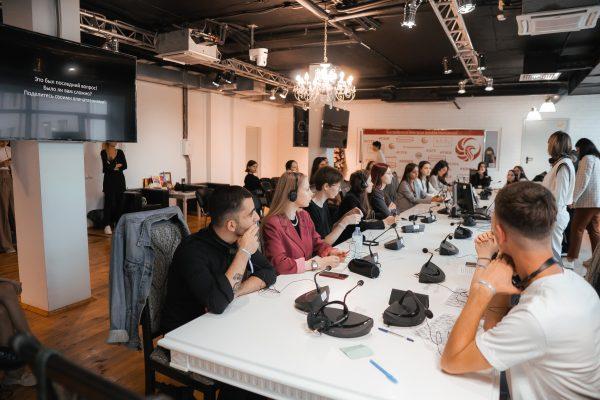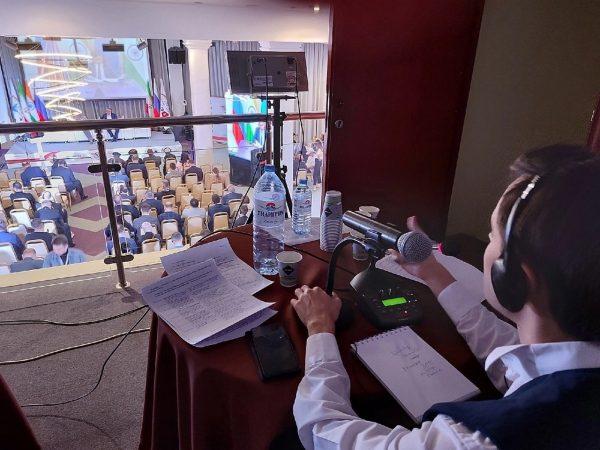Why CITS?
- MA programs of the Caspian Higher School of Interpreting and Translation focus on developing relevant and highly demanded T&I skills and competencies required today.
- The disciplines are designed for practicing skills in editing and post-editing, interpreting prediction, translation in various industrial fields, conference interpreting, and terminology, among other things.
- Specific training modules and professional software help to work through different exercises and simulate real interpreting conditions.
CITS students
– study in classrooms with the cutting-edge simultaneous interpreting equipment, similar to that used by interpreters at leading EU institutions;
– practice their T&I skills with CITS professors who are interpreters and translators themselves;
– attend master classes and seminars held by the School’s partners, leading translation universities of the country: Moscow State Linguistic University, Herzen State Pedagogical University, Linguistics University of Nizhny Novgorod, and others;
– learn interpreting techniques from CITS international partners: Minsk State Linguistic University, Belarus, Urgench State University, Uzbekistan, and others;
– get an opportunity to take internships in leading international and Russian institutions: World Intellectual Property Organization (WIPO), Geneva, UN Office in Vienna, Austria, Department of Linguistic Support of the Ministry of Foreign Affairs of the Russian Federation (MFA of Russia), Federal Institute of Industrial Property (FIPS, Rospatent), Moscow;
– write master’s theses commissioned by prospective employers: students present their translation projects in collaboration with industry representatives thus contributing to the translation field; the results of projects on updating the international terminology database WIPO PEARL, translating the International Classification of Goods and Services in cooperation with FIPS Rospatent, preparing bilingual descriptions of art objects for the Dogadin Astrakhan State Art Gallery, compiling a multilingual glossary on shipbuilding (Russian-Chinese-Italian-English) were approved and published.
– are actively volunteering, thus gaining experience in translation and interpreting and finding prospective employers: every year the number of Caspian and international events held in Astrakhan grows, and MA students always have an opportunity to practice interpreting in different areas from industry to sports, to receive letters of appreciation and, above all, experience needed for employment;
The Caspian Higher School of Interpreting and Translation gives an opportunity to choose a career that suits a student best: CITS trains interpreters- and translators-to-be of both regional, national and international levels!





